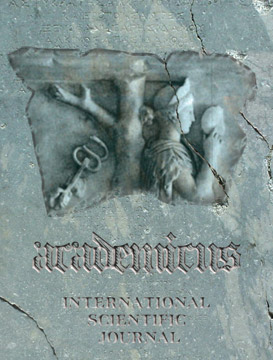Title:
Author(s):
Abstract:
This research describes the working, benefits and challengers of polygraph tests. Polygraph tests are lie-detecting devices that help ascertain individuals’ honesty based on physiological indicators. The heart rate/blood pressure, respiration, and skin responses are the three indicators measured in the test to assess honest/deceitful behavior. The underlying assumption behind the working of polygraph tests is that the autonomic responses of dishonest individuals are distinctively different from those of honest people because the liars will be more nervous than truth tellers. Control Question Test (CQT), Guilty Knowledge Test (GKT) or Concealed Information Test (CIT) and Neuroscience-Based Advanced Polygraph Tests are the important types of polygraph tests used today. Polygraph tests are used to detect truthfulness of individuals in such important fields as crime investigation departments, national security agencies, and business and industry. However, accuracy of polygraph tests and ethical issues associated with the tests are highly debated.
Keywords:
polygraph; autonomic responses; truthfulness; dishonesty; misclassification
Full Text PDF:
References:
View complete reference list, click
here
Digital Object Identifier DOI:
The article's content ©Academicus™ Polygraph Tests - Benefits and Challenges
by
Dr. (PhD) Panthayil Babu Rajan
is licensed under a Creative Commons
Attribution-NonCommercial 4.0 International License.
Presented:
September 2018
Included for Publishing:
December 2018
Published:
January 2019,
Volume 10,
Issue 19
Academicus International Scientific Journal is an Open Access Journal. This means that all content is freely available without charge to the user or his/her institution. Users are allowed to read, download, print, search, or link to the full texts of the articles in this journal without asking prior permission from the publisher or the author. This is in accordance with the BOAI definition of open access. Users are obliged to cite the source (Academicus International Scientific Journal) and the author, according to the international citation standards.
To learn more about the OA Policy followed by Academicus ISJ, read Journal Regulations
Academicus
International Scientific Journal
pISSN 2079-3715
eISSN 2309-1088
Address:
Sheshi i Flamurit, Rruga Muze
Al-9401 Vlorë, Albania
Tel: +355 68 60 60 555
info@academicus.edu.al
https://academicus.edu.al



 Scholar
Scholar
 Crossref
Crossref
